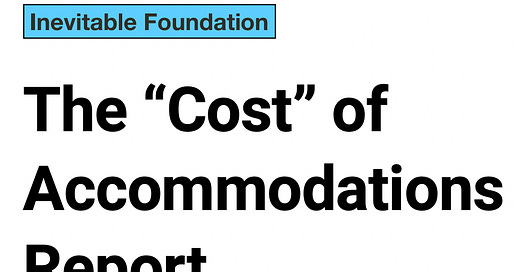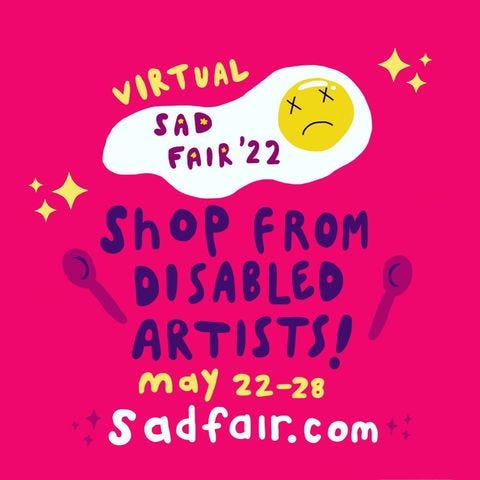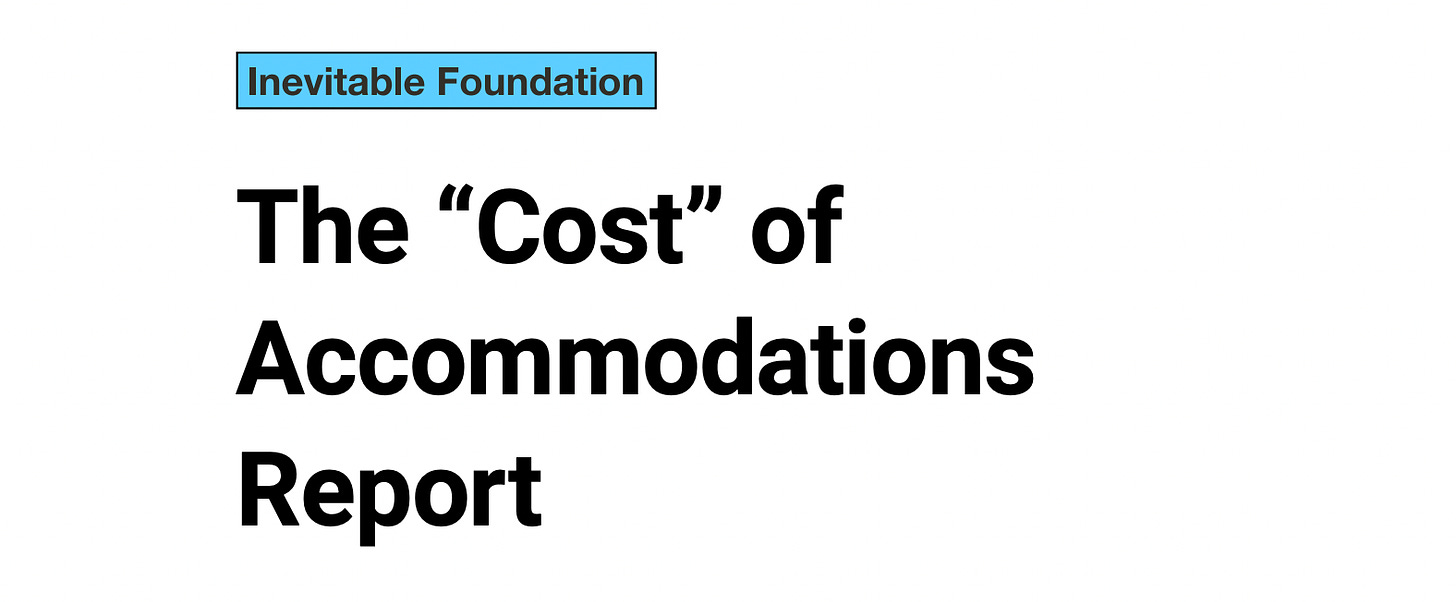Crip News v.32
NEWS
NPR has published a two-part series on the shortage of qualified teachers for disabled students (not just teachers with provisional special education licenses) in the U.S.
Sixty Inches from Center has published a conversation among Chicago-based artists and organizers about the difficulties disabled artists face seeking funding without jeopardizing access to state support.
Disability Arts Online has received £100,500 from Arts Council England’s new Capital Investment Programme “to reach and support a larger number of disabled creatives.”
Arts House in Australia has announced the inaugural cohort of a five-year Deaf and Disability-led residency and commissioning program: Catherine Dunn and Sam Martin, Leisa Prowd and Mishka.
The Uniting for Change Coalition has published a plain language guide to ableism and violence.
The Ruderman Family Foundation has recognized a new cohort of awardees of its “Seal of Approval for Authentic Representation” in Hollywood. (See today’s special section below for more on the limits of this way of conceptualizing disability and representation.)
The Century Foundation has launched the Disability Economic Justice Collaborative to bring together organizations to break the links between disability and poverty. One of their first projects involves new polling data with Data for Progress revealing that just 3 in 10 disabled voters in the U.S. believe leaders in D.C. care about disabled people.
The video is available from The ARC’s disability rights rally in late March on Capitol Hill to call for more federal disability funding.
AI chatbots are being used to help young people’s mental health crises, which we could understand as part of a general trend in healthcare away from clinical and human-centered care practices.
The new Gerber Baby, Isa Slish, is disabled! Almost all the press about the announcement has opted to use the term “limb difference.”
Graphic with hot pink background and bubble text that says “shop from disabled artists! May 22-28, sadfair.com”. Above the text is an illustration of an egg with the white part spilling out. Over the egg white there is text that says “SAD Fair ‘22” . The egg yolk has a frowning face and X’s for eyes. Above the egg is the word “virtual”.
CRITICAL ANALYSIS: INCLUSIONISM’S COSTS
Last month, the Inevitable Foundation, whose mission is “to fund and mentor professional disabled screenwriters and build an unrivaled content development and staffing pipeline for film and television,” released a report called “The ‘Cost’ of Accommodations.” Because it is a major document, born of research to advance activist demands, I wanted to offer some reflection in today’s issue.
This is a landmark report, highly targeted for the film and television industry. Interview research with 35 disabled artists offers insights about many kinds of exclusion across a wide range of projects. There are some important insights about the laborious and financially injurious things disabled artists do to maintain their careers in the industry.
It also exemplifies what is and isn’t possible when anti-ableism is conceptualized only in terms of “accommodations.” The Foundation’s resources include a database of accommodations like ASL interpretation and CART captioning, with calculators and budget templates to help film and TV insiders discover what the report’s authors hope is a main takeaway: that it costs less than you might think to make sure disabled artists’ needs are met.
“Accommodation” as a framework assumes that we ought not to threaten a status quo. It assumes the benefits of inclusion, where disabled people have access to a process but don’t shape or lead its values. The report is a great example of what we might call inclusionism, accommodationism, incrementalism, or reformism.
Accommodation comes from commodus, to fit, and with an aspect of convenience. Commodus generates commodity, so there is an aspect of exchange, and of smoothing exchange relations. I want to articulate why accommodation is such an insufficient concept. So much of structural access, be that an elevator, or a ramp, or signage in braille, or affirmative action, or a loan, is a minimal relational proposition: a ramp can get a person in and out of a place, but what about what happens inside? I don’t want to be accommodated, I want to help change the very systems and structures that view my presence as an act of accommodation.
—”Against Accommodation: Park McArthur in conversation with Daniel S. Palmer,” Mousse Magazine (2015)
If we take justice and liberation as our guide, “the cost of accommodations” means that we are forego a radical commitment to access ecologies where money is just one kind of currency among forms of care, ingenuity, and anti-ableist excellence. Why not ask what it would take to have writing rooms that are led entirely by “crip emotional intelligence,” which would have a much more meaningful effect than the dubious outcomes of closing the “representation gap,” a gap I’m not sure is legible outside the frame of white disability culture.
Could we develop a cost analysis of not having disabled people in decision-making processes? The report’s limitations might be one example, since the Inevitable Foundation is itself not all disability-led. The Foundation’s central work to support “mid-career” artists is itself ableist, ignoring the way poverty and disability are mutually reinforcing.

The report quantifies immense commitments to an ableist status quo. It risks significantly expanding an entire economy of access products and services that are built on the exploitation of disabled people. It confuses the way ableism can be destroyed, which is not through a budget or an accommodation but through artistry and collective decision-making process.
CALLS
Creative Time is looking for proposals from disabled artists for its 2022-2023 Open Call. Applications close on May 22.
The Smithsonian is hiring an Inclusive Design Specialist. Applications close on May 27.
Arts and Disability Ireland is accepting applications for its Arts and Disability Connect funding for New Work (€15,000), Research and Development (€5,000), Mentoring (€3,000) and Training (€1,000). The first of 2 deadlines is today, May 16.
EVENTS
The U.S. Department of Arts and Culture (USDAC) will present “Artists and Healers as Essential to Recovery from Crisis” featuring jackie sumell (The Prisoner’s Apothecary), Auntie Sewing Squad, Ana Rodney, and Taja Lindley on Friday, May 20, 2022 from 3 pm-4:30 pm PT/6 pm-7:30 pm ET. Register here.
The p5.js Access Day, a “virtual conference to talk about access in open-source software for the arts and greater issues beyond software,” is happening Saturday, May 21st. Register here.





